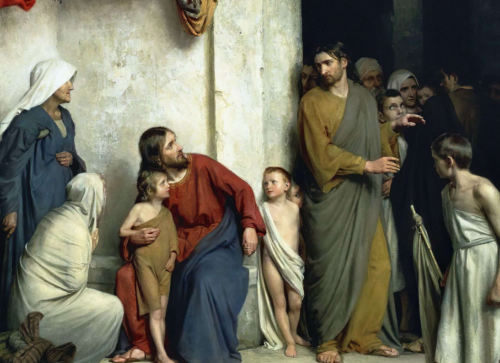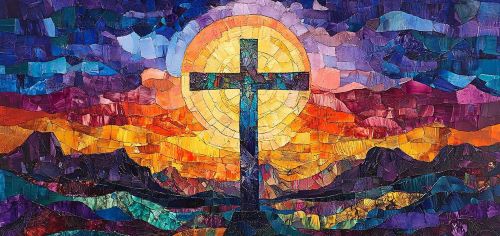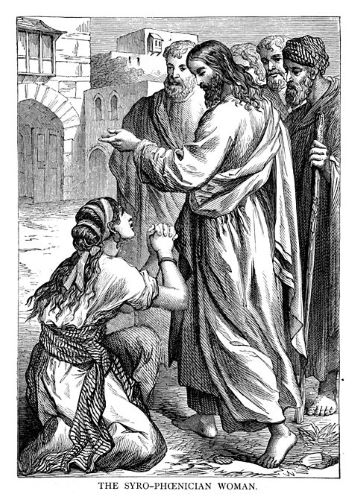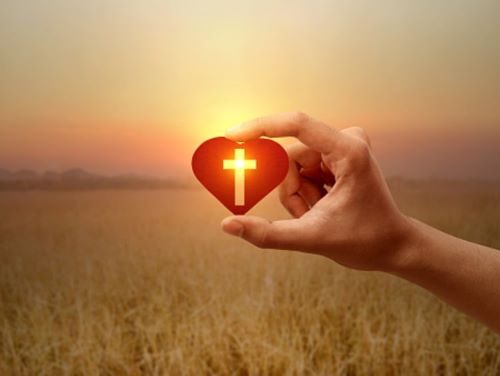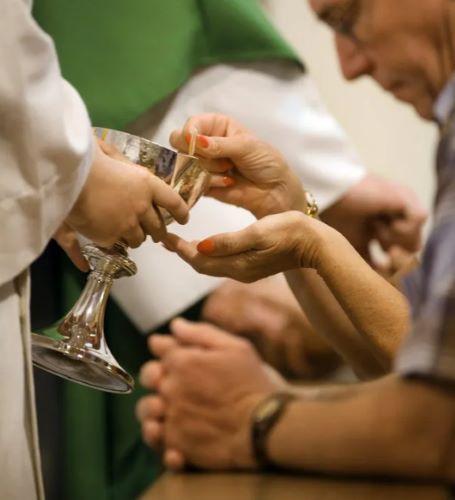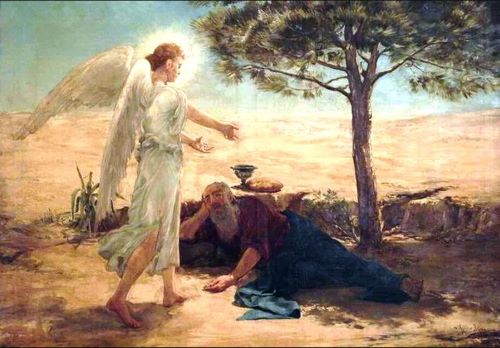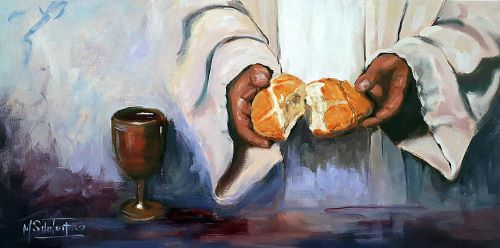Salt and Light
Year A
Isaiah 58:1-12
Psalm 112:1-9
1 Corinthians 2:1-16
Matthew 5:13-20
May the words of my mouth… O God… speak your truth…
In today’s Gospel… which is a continuation of the Beatitudes… Jesus addresses his disciples and says … you are the salt of the earth… you are the light of the world… not become salt… not strive to be salt… and not become light… not strive to be light… but you are already these things… they exist within your being… you already own them… but how is that…
Salt is a universal flavor enhancer… it decreases water activity which can increase the experience of flavor… at low concentrations… it reduces bitterness and increases sweet and sour tastes… which is desirable for sweet recipes… like adding just a pinch in chocolate chip cookie recipes… but in higher amounts… it suppresses sweetness and enhances savory flavors… though too much salt is not good either… and so years ago… when my daughter came to visit Joel and me in Columbus… we wanted to make something we knew she liked… and so Joel made pancakes for breakfast… he made them from scratch… but instead of measuring out 3½ teaspoons of baking powder… he measured out 3½ teaspoons of salty baking soda… and I have to tell you… no amount of maple syrup could cover up the saltiness of those pancakes…
Light on the other hand… allows us to see… and there is both outer seeing… like having enough light to read by… and inward seeing… as in… I see… said the blind man… as in… let those who have eyes see… and like salt… there can be so little light that we can’t see what’s right in front of us… or so much that we are blinded…
But Jesus isn’t talking to us individually… the YOU in this text in Greek is plural… he’s talking to his disciples as a group… and the life of discipleship is conceived of… as life within the community of faith… a community charged with a mission to the world… but in truth… being the salt of the earth is essentially a spiritual reality… when we understand that we are potential which may not be actualized… and when this happens… people lose their flavor…
Now there’s not much firewood in the Middle East… but there is a lot of dung… with a high level of compressed plant matter which can burn as fuel… but even this needs some help… so a block of salt is often placed at the base of the oven… and the salt becomes a catalyst for the fire… allowing the dung to burn hotter and more completely… but over time… that salt lost its ability… and was often laid out like paver stones… it literally became good for nothing but being trampled under foot…
The You are then… is intended to foster an awareness… it is meant to move the attention from the evaluations which society tries to impose on us… like you are a sinner… or you are no good… and establish in the hearts and minds of those who are addressed… in our hearts and minds… the truth of who and what we are…
There’s a form of poetry called the ode… a poem which speaks directly to its subject… and often elevates an inanimate object… and there’s a Chilean poet named Pablo Neruda… who wrote… an Ode to Salt… and in it… Neruda writes… On every table in the world, salt… we see your piquant powder sprinkling vital light upon our food.… the smallest… miniature wave from the saltcellar… reveals to us more than domestic whiteness… in it… we taste infinitude…
Jesus claims that his followers… all of them… all of us… are tiny grains of salt… yet infinity shines forth through each of us… and in commenting on Neruda’s words… the Rev. Charles Hoffacker writes… so… the smallest grain of salt… one almost invisible to the eye… brings to us the flavor of the infinite… which we have received through our baptisms…
When we read the scriptures at home… or listen to them here… we hope that they serve as food which nourishes our spiritual body… that we really listen to what God is saying to us… and having listened… are moved to embody and act on them… and how we read scripture matters… we need to consider the historical context in which it was written… and the timeframe over which it was too… how what has come down to us is in some ways… different from the original texts… how some words are understood differently now than they were then… and we need to affirm… that there is good news… in the Jewish scriptures… like our reading from Isaiah… and in the Christian scriptures… and we affirm that in order for there to be good news… there is an underlying consistency… God’s consistency… of what God wants us to know… and to do…
But we’re also modern enough… to understand that scripture must be understood in context… that some things that applied to scripture’s original writers and audiences… may not apply to us now… and we have to remember… that scripture has been used to support slavery… the oppression of women… the burning of witches… and the persecution of Jews…
For example… we don’t pay too much attention to verses like Lev. 11:10… which says that eating shellfish is detestable… or Lev. 19:19… which says we may not wear clothing made up of two or more fibers… or Lev. 25:44… which says we are allowed to take male and female slaves from neighboring nations… but do we pay enough attention to verses like Lev. 19:34… which says… the alien who resides with you shall be to you as the citizen among you… you shall love the alien as yourself… for you were aliens in the land of Egypt… and I wonder which passages we listen to more… which are more self-serving… or line up with what The Rev. Dr. Laurence Keene said… there’s nothing wrong with a fifth-grade understanding of God – as long as you’re in the fifth grade…
And today’s passage from Isaiah was written about 800 years before Jesus was born… it is a hard reading on which to be nourished… it contains sharp words which can cut… or give us indigestion… it shines a light on the sin of Isaiah’s time… on sins which may have made their way down to our time… and as we celebrate Black History month… it is painful to take an honest look… at where we are… and where God calls us to be… the weight of them can make us bristle… because they can be really hard to do… like not serving our own interests… treating all workers the way we’d want to be treated… letting go of injustice… letting the oppressed go free… sharing our bread… because then… our light will break out like the dawn… and our healing shall spring up quickly… and God will go before us… and God’s glory will follow us… and when we call… God will answer… and when we cry for help… God will say… Here I am…
We are the salt of the earth… Theologian John Shea writes: our salt identity is for the benefit of the earth… our lives are a mission to bring zest and meaning to the earth… what is wasteful is to lose this ultimate purpose and passion… to forget this calling and take on a lesser identity… which cannot be savored… but is trampled underfoot…
We are the light of the world… we are not meant to hide our light… our very selves… under bushel baskets… we are meant to shine… so it may be worth asking… why do we minimize our light… what keeps us from shining… and what are our baskets… of what are they made… what experiences in our lives wove them… and why… and from whom… do we hide… certainly not from Jesus… whose very salt gives our lives flavor… and whose light it is… that shines in and through us…

